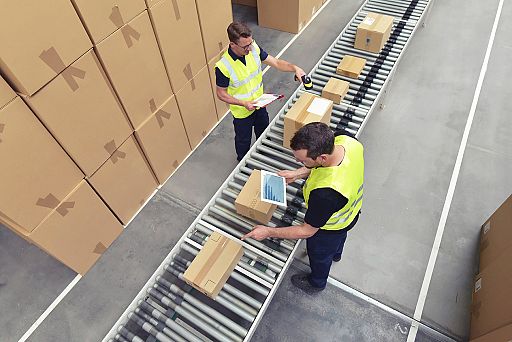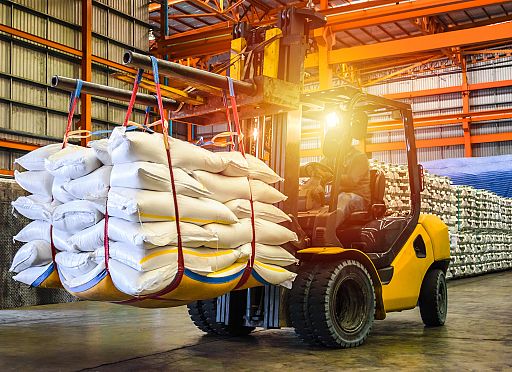Short-term visits remain unaffected by Brexit. Under the UK’s new points-based immigration system, EU citizens can continue to visit the UK without applying for a visa. In most cases, they can stay for up to 6 months, and may participate in business-related activities such as meetings, events and conferences.
For EU, EEA or Swiss citizens wanting to work in the UK for longer than 6 months, they need to apply for a visa.
Travel between the UK and Ireland is subject to Common Travel Area arrangements, which remains unchanged. Irish citizens can continue to travel visa-free to the UK for longer than three months.
Yes. UK passport holders can cross an external EU border using just a valid passport and stay anywhere in the Schengen Area for up to 3 months.
To stay in the Schengen Area for longer than 90 days, a visa or another kind of travel permit is required. UK citizens visiting more than one country in the EU, Switzerland, Norway, Iceland or Liechtenstein, must have a passport valid for at least 3 months from the day after they leave the last country visited. Check the travel advice for the country you’re visiting for the latest information.

Because the UK has left the single market, businesses importing goods into Great Britain from the EU will now need to make customs declarations for EU imports.
There will be additional requirements for the importation of fish. Businesses importing fish will need a catch certificate and supporting documents validated by the country of export. These will vary as they are produced by the exporting country.
UK port health authorities (fisheries authorities in Northern Ireland) will check these documents on the importation to the UK of containerised fish by sea, air, road or rail. The government has a step-by-step guide for importing goods into the UK which can be found here. Specific guidance on importing fish is here.
There have been a number of changes in the process for importing products into the UK from the EU. This includes making sure businesses have the correct EORI number and that the requirements regarding certificates, licencing and labelling are followed. The government has a step-by-step guide to importing which outlines the process and changes here.
Businesses are expected to pay VAT and import duties on goods entering the UK from the EU. Although it is worth noting that exhibitors and traders can apply for an ATA Carnet, which would make them exempt from certain duties, see below for more details.
To minimise disruption at the borders, HM Revenue and Customs (HMRC) has stated that VAT registered businesses are able to utilise postponed accounting procedures. This process enables a business to account for import VAT at a later date than the date that their goods arrive at the UK border.
VAT is also be payable on goods entering the UK from the EU via parcel services. Therefore, import VAT will be applied to parcels worth £135 and under. Low Value Consignment Relief will also cease to apply on parcels worth less than £15.
Certain goods (such as alcohol, tobacco and hydrocarbon oils) are subject to excise duty upon importation into the UK, unless placed directly into the UK excise duty suspension.
Certain businesses can avoid paying duty on goods being applying for an ATA Carnet. This is an international customs document which enables the business to temporarily import commercial samples, professional equipment or goods destined for a trade fair or exhibition. Once a business has an ATA Carnet it can clear goods through customs using a single document, only for countries within the ATA Carnet system.
To apply for an ATA Carnet, please contact the London Chamber of Commerce and Industry and complete the online process.
A RoRo border is a port which uses ship vessels designed to carry wheeled cargo, such as cars, trucks and trailers. A full list of RoRo ports in the UK can be found here.
There have been no major changes to flight frequency between the EU and the UK. ABTA has updated Brexit advice for travellers here.
Agility Fairs & Events are the official logistics partner for Excel.
The key to minimising any potential delays to your shipment will be ensuring that complete and accurate paperwork can be provided to your local Agility office at the time the shipment is booked. This will allow our customer service teams to check that there is sufficient information available to us to ensure a smooth customs declaration process at both departure and arrival.
HMRC have written to VAT registered businesses who trade with the EU to advise their assigned UK EORI number. If you are a business without a UK EORI number, you should apply immediately via www.gov.uk/hmrc/get-eori in order to commercially trade with the EU.
This will help identify who has responsibility for payment of costs associated with the shipment and duty/taxes.
Use can use the government guidance to ensure you are using the correct codes.
www.gov.uk/guidance/finding-commodity-codes-for-imports-or-exports
Minimum details for an invoice:
- Your company details — name and address
- Your VAT number
- Your EORI Number
- Your customers details — name and address
- Your customers VAT number
- Incoterms (Terms of Sale agreed with the customer)
- Detailed description of the goods
- Customs commodity code for the goods
- Quantity of goods
- Country of origin of the goods
- Commercial value of the goods and currency
a. A duty deferment account with HM Revenue and Customs
b. Transitional Simplified Procedures: www.gov.uk/register-for-simplified-import-procedures-if-the-uk-leaves-the-eu-without-a-deal
Agility has been monitoring the situation closely and has set up a team of customs specialists throughout Europe, who will continue to work with various trade bodies on the potential impact of Brexit. They are working to ensure minimal disruption to your business based on how the rules and regulations may change.
Mark Dawson
+44 (0) 20 7046 5308
or mdawson@agility.com
Dan Flower
+44 (0) 20 7046 5304
or dflower@agility.com
Businesses will still be able to import animals, animal products, food and feed from the EU and the rest of the world. The process for notifying the relevant authorities of these imports has changed and can be found here.
The UK will no longer uses TRACES, the EU’s import system. Instead, the UK has launched its own system, called the ‘Import of products, animals, food and feed system’ (IPAFFS). This system enables the creation of notifications for consignments of imports and is available for imports from the EU. You can register here.
Some food standards may have changed or be in the process of changing. It is advised to check the latest government information which can be found here.
Food imports from the EU, like imports from the EU in general, may have changed in cost. Find out how much tax and duty you will need to pay here.
Agricultural imports from non-EU countries are subject to particularly high duties, meaning that agricultural imports from the EU are likely to become similarly expensive to import into the UK.
